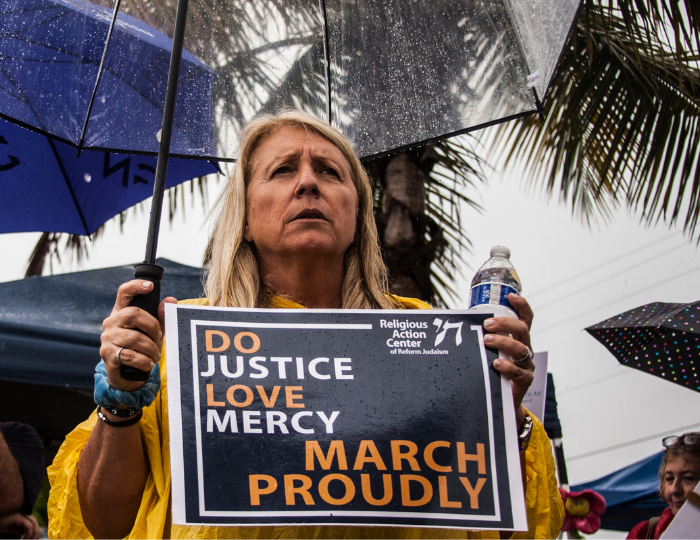
On Tisha B’Av, the day when Jewish communities mourn the destruction of the Temple and other tragedies that have befallen the Jewish people, those reading the book of Lamentations cry out, “Renew our days as of old.” For some, this is a more literal plea for the rebuilding of the Temple, and for others, the call serves as a plea for spiritual renewal.
As an American, I can’t help but think of much of the contemporary rhetoric around immigration when I hear a call for a return to days of old. Many Democrats, Republicans, and independents outraged by this Administration’s immigration policy have emphatically stated, ‘America is better than this.”
I understand the desire to assert this claim in the hopes that we can alter the course of political events by rallying around the promise of America’s greatness. But that promise is a false one for so many. Japanese Americans who were held in internment camps during World War II know that America is not inherently better than this. In fact, they know that America acted similarly not so long ago. Native communities that were forcibly displaced know America is not better than this. Black Americans, on whose ancestors’ backs this country was built, know America is not better than this. In order to combat the white supremacy, racism, and xenophobia in this country, we must reckon with the painful reality that no, America is not better than this. But maybe it can be.
In This is Real and You are Completely Unprepared, Rabbi Alan Lew writes, “The great journey of transformation begins with the acknowledgement that we need to make it.” Acknowledging and owning up to our country’s history is a necessary prerequisite to transforming America into something greater.
Tisha B’Av affords us the opportunity to confront this deeply painful reality head on. Many Jews spend the saddest day on the Jewish calendar mourning the destruction, pain, and tragedy that has happened to our people over generations. For many Jews in America, the contemporary manifestations of white supremacy are a modern-day tragedy. Elected officials have not only given a platform to anti-Semitism, they have also used it as a wedge to pit marginalized communities against one another. Furthermore, American Jews are active members of a society that has allowed history to repeat itself with the American government stoking the flames of xenophobia and imprisoning immigrants and asylum seekers.
Tisha B’Av leads into the High Holy Day season, when Jews annually undergo a process of teshuva, or returning from sin. The rabbis discuss and debate what teshuva looks like. Rav Yehuda teaches that one demonstrates that they have truly repented when they face a situation that led them to sin in the past but respond differently the second time around (Yoma 86b). America is headed down a dangerous yet familiar path, but it is not too late to change course. Perhaps if we, as a country, confront our modern-day tragedies, we will develop the foresight and fortitude to do true teshuva.
Related Posts

Remarks from Rabbi Eliana Fischel at Jewish Gathering for Abortion Access

Teens from North Carolina Speak About Environmental Justice

